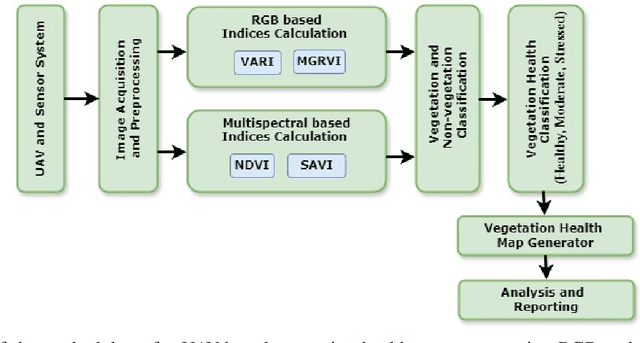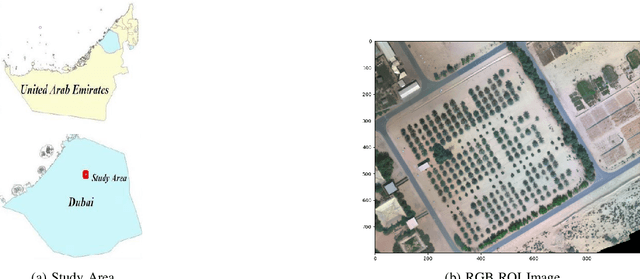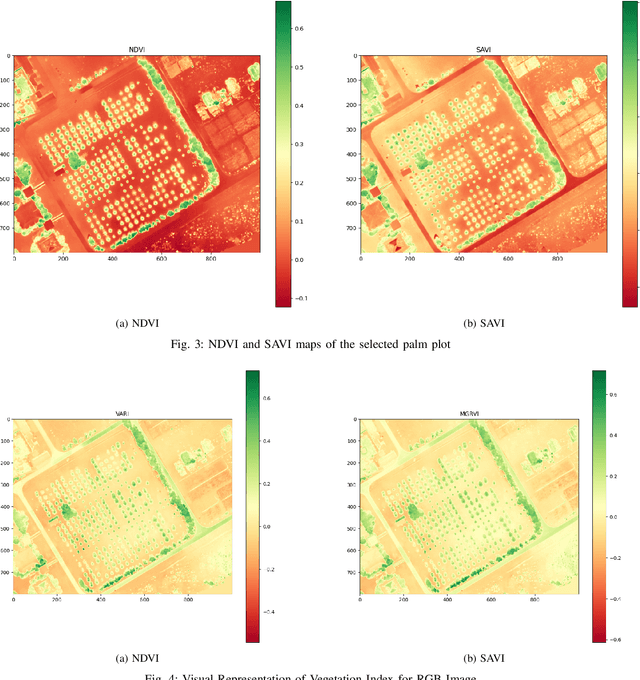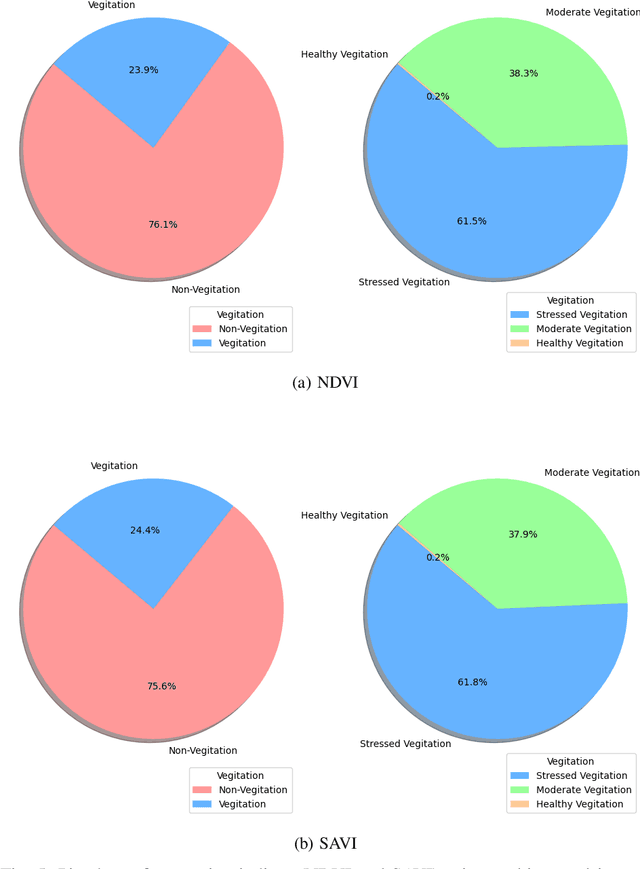S M Anzar
Evaluation of UAV-Based RGB and Multispectral Vegetation Indices for Precision Agriculture in Palm Tree Cultivation
May 06, 2025



Abstract:Precision farming relies on accurate vegetation monitoring to enhance crop productivity and promote sustainable agricultural practices. This study presents a comprehensive evaluation of UAV-based imaging for vegetation health assessment in a palm tree cultivation region in Dubai. By comparing multispectral and RGB image data, we demonstrate that RGBbased vegetation indices offer performance comparable to more expensive multispectral indices, providing a cost-effective alternative for large-scale agricultural monitoring. Using UAVs equipped with multispectral sensors, indices such as NDVI and SAVI were computed to categorize vegetation into healthy, moderate, and stressed conditions. Simultaneously, RGB-based indices like VARI and MGRVI delivered similar results in vegetation classification and stress detection. Our findings highlight the practical benefits of integrating RGB imagery into precision farming, reducing operational costs while maintaining accuracy in plant health monitoring. This research underscores the potential of UAVbased RGB imaging as a powerful tool for precision agriculture, enabling broader adoption of data-driven decision-making in crop management. By leveraging the strengths of both multispectral and RGB imaging, this work advances the state of UAV applications in agriculture, paving the way for more efficient and scalable farming solutions.
Performance Evaluation of Image Enhancement Techniques on Transfer Learning for Touchless Fingerprint Recognition
Feb 07, 2025Abstract:Fingerprint recognition remains one of the most reliable biometric technologies due to its high accuracy and uniqueness. Traditional systems rely on contact-based scanners, which are prone to issues such as image degradation from surface contamination and inconsistent user interaction. To address these limitations, contactless fingerprint recognition has emerged as a promising alternative, providing non-intrusive and hygienic authentication. This study evaluates the impact of image enhancement tech-niques on the performance of pre-trained deep learning models using transfer learning for touchless fingerprint recognition. The IIT-Bombay Touchless and Touch-Based Fingerprint Database, containing data from 200 subjects, was employed to test the per-formance of deep learning architectures such as VGG-16, VGG-19, Inception-V3, and ResNet-50. Experimental results reveal that transfer learning methods with fingerprint image enhance-ment (indirect method) significantly outperform those without enhancement (direct method). Specifically, VGG-16 achieved an accuracy of 98% in training and 93% in testing when using the enhanced images, demonstrating superior performance compared to the direct method. This paper provides a detailed comparison of the effectiveness of image enhancement in improving the accuracy of transfer learning models for touchless fingerprint recognition, offering key insights for developing more efficient biometric systems.
AI-Driven Solutions for Falcon Disease Classification: Concatenated ConvNeXt cum EfficientNet AI Model Approach
Feb 07, 2025Abstract:Falconry, an ancient practice of training and hunting with falcons, emphasizes the need for vigilant health monitoring to ensure the well-being of these highly valued birds, especially during hunting activities. This research paper introduces a cutting-edge approach, which leverages the power of Concatenated ConvNeXt and EfficientNet AI models for falcon disease classification. Focused on distinguishing 'Normal,' 'Liver,' and 'Aspergillosis' cases, the study employs a comprehensive dataset for model training and evaluation, utilizing metrics such as accuracy, precision, recall, and f1-score. Through rigorous experimentation and evaluation, we demonstrate the superior performance of the concatenated AI model compared to traditional methods and standalone architectures. This novel approach contributes to accurate falcon disease classification, laying the groundwork for further advancements in avian veterinary AI applications.
 Add to Chrome
Add to Chrome Add to Firefox
Add to Firefox Add to Edge
Add to Edge